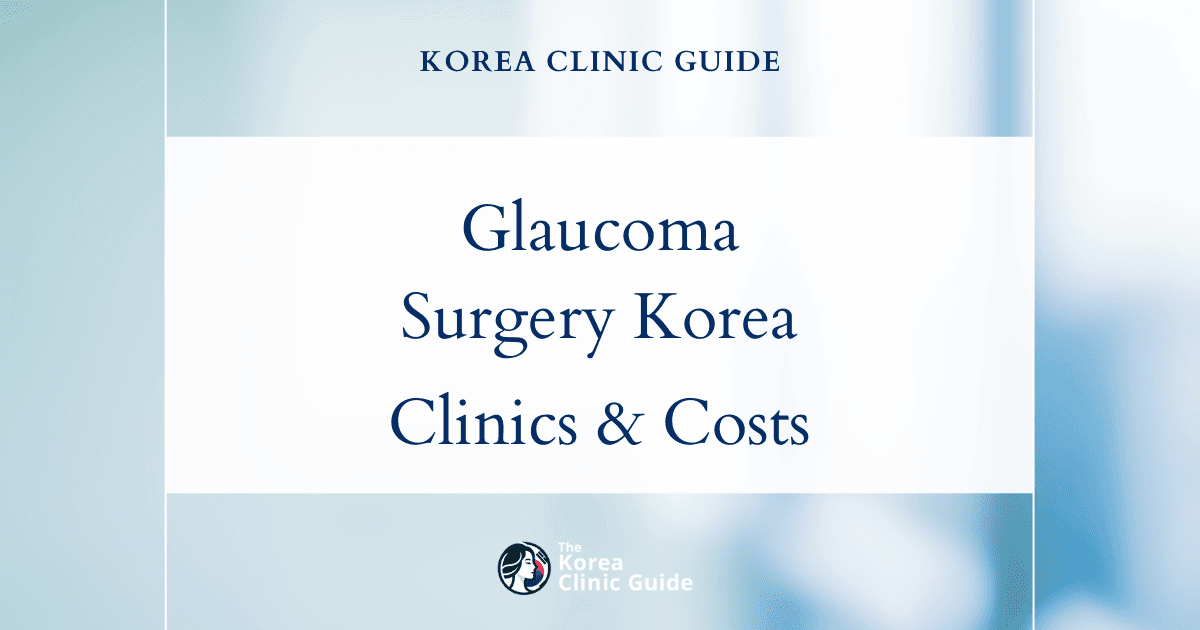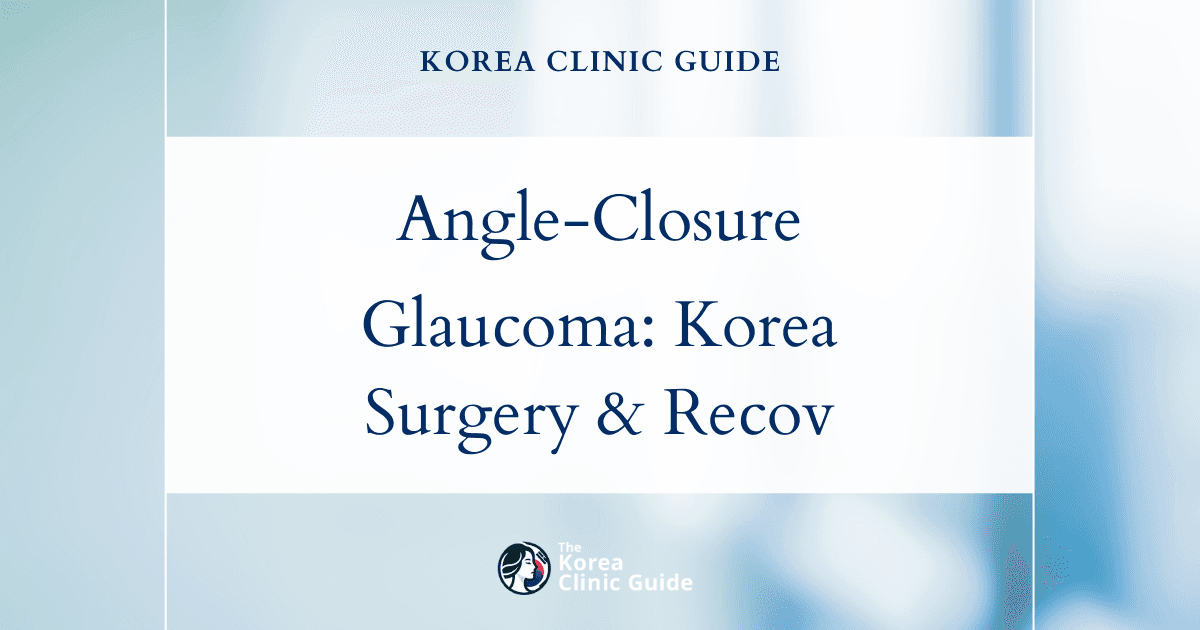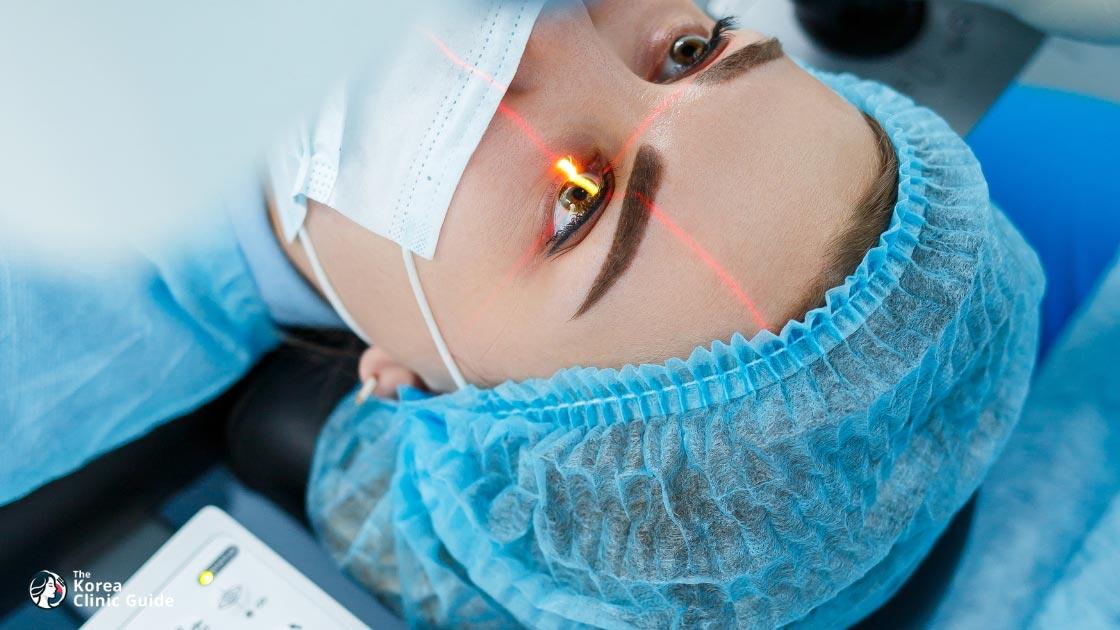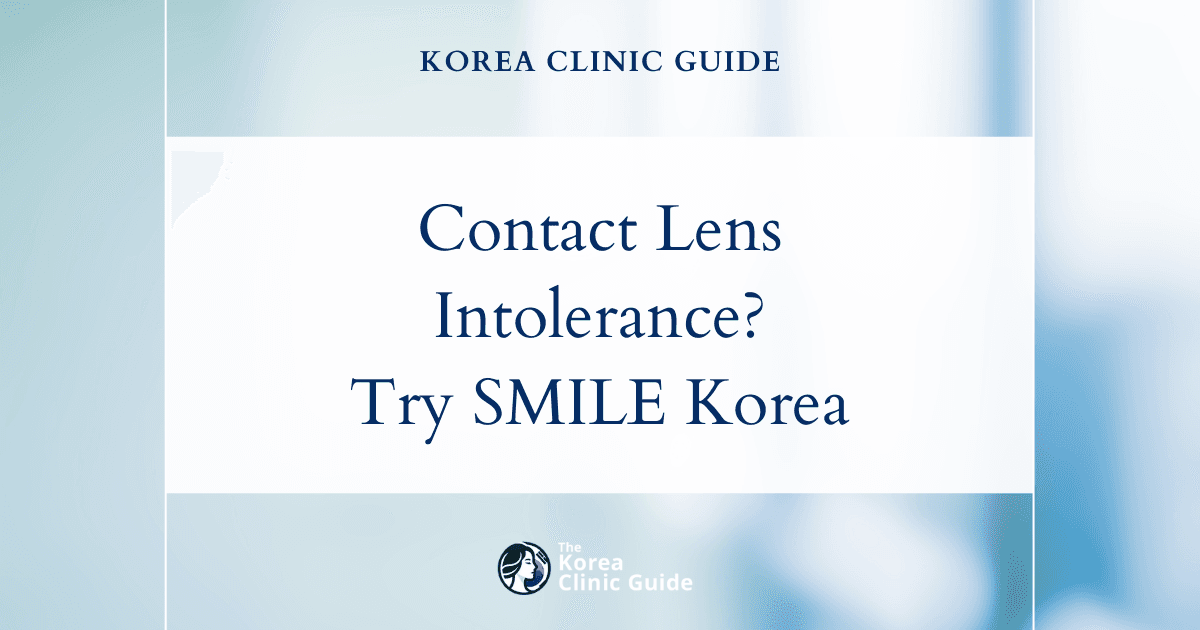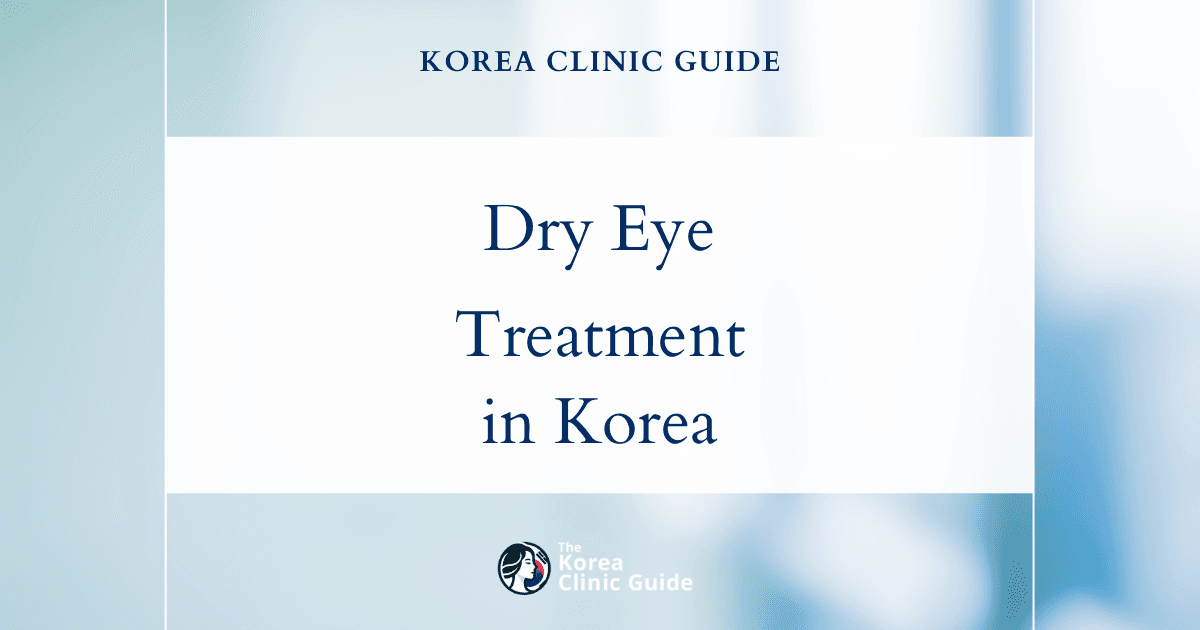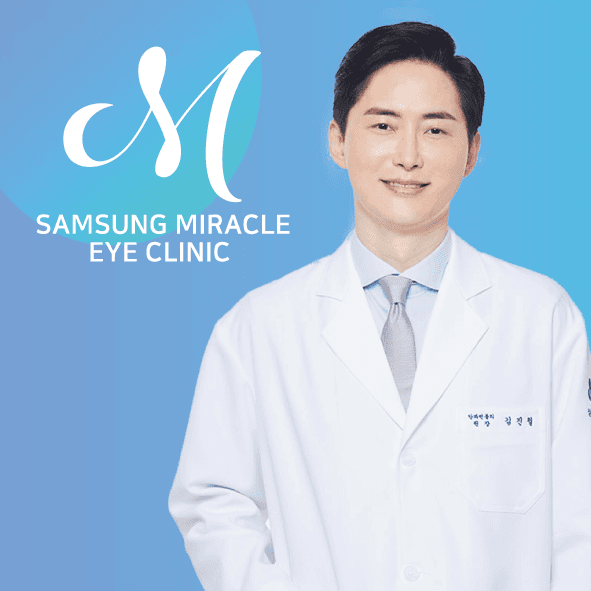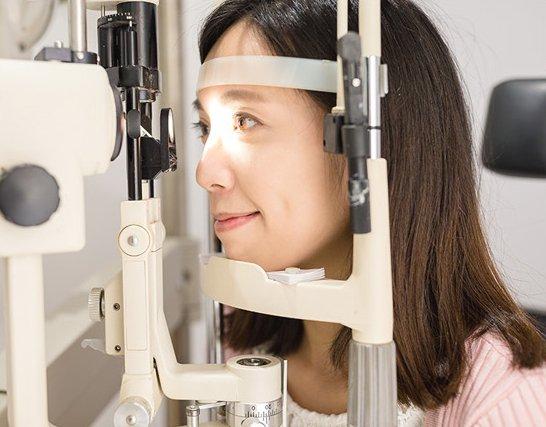Medical Tourism Blog
ICL Lens Implant in Korea | Best Clinics, Costs, Procedure Types & More
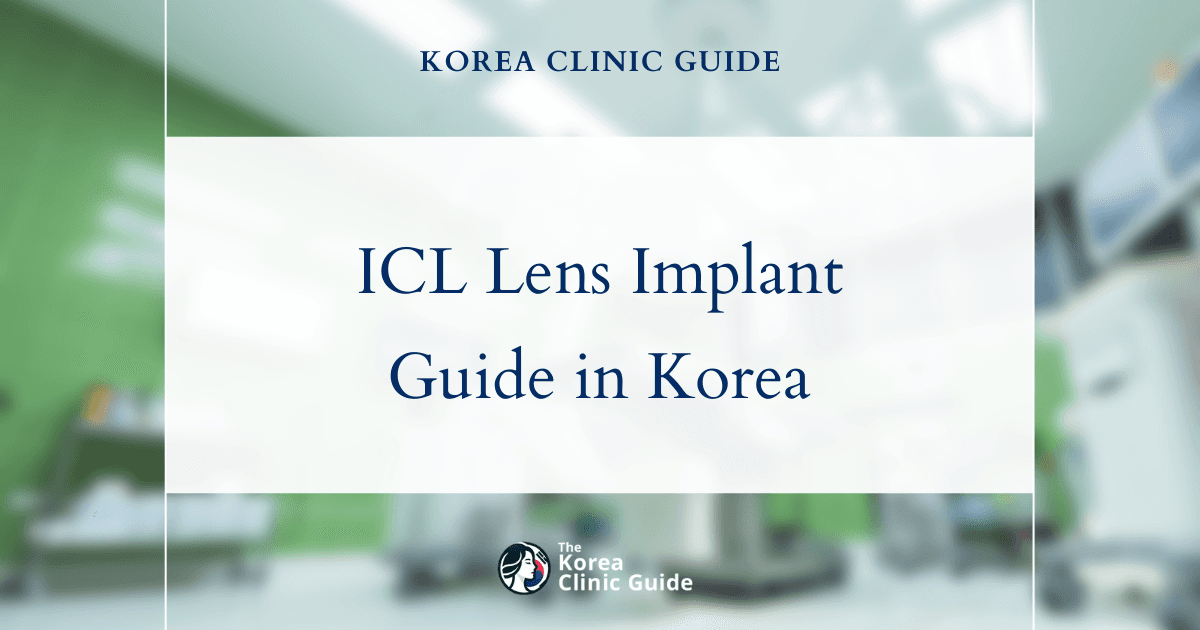
Table of contents
- What Is ICL Lens Implant?
- Best Clinics in Korea for Icl Lens Implant
- ICL Lens Implant in Korea
- Cost of ICL Lens Implant in Korea
- Alternatives to ICL Lens Implant
- Conclusion
Considering treatment in Korea? Everything you need to know e.g. — how to avoid scams, visas, interpreters, recovery tips — in our Medical Tourism Master Guide. Plan with confidence in minutes, not weeks!
Imagine shedding your glasses or contact lenses and waking up each day to clear, vibrant vision—this dream is becoming a reality for many individuals choosing ICL lens implants, particularly in South Korea. Known for its cutting-edge medical facilities and skilled ophthalmologists, Korea is emerging as a go-to destination for this innovative eye surgery, offering precision, reversibility, and a promising alternative to traditional LASIK procedures.
What Is ICL Lens Implant?
The Implantable Collamer Lens (ICL) is a type of corrective lens that is surgically placed inside the eye to improve vision. Unlike traditional contact lenses that sit on the surface of the eye, ICLs are positioned behind the iris and in front of the eye's natural lens. This procedure is gaining popularity in places like Korea due to its effectiveness and the advancement of healthcare technologies.
ICL Lens Implants serve as an alternative to laser eye surgeries such as LASIK, particularly for individuals who may not be suitable candidates for laser-based procedures. This may include patients with severe myopia (nearsightedness), thin corneas, or dry eyes. The procedure is distinct because it is minimally invasive, often providing quick vision correction and a short recovery period.
There are a few different types of ICL procedures, primarily distinguished by the kind of vision correction they address. Some of these include:
-
Myopic ICL: Designed for patients with moderate to high levels of myopia, these lenses help in significantly improving distance vision by compensating for the refractive error.
-
Toric ICL: This variation is tailored for patients who suffer from both myopia and astigmatism, correcting both refractive issues simultaneously.
The ICL itself is made of a biocompatible material known as Collamer, which consists of collagen and a copolymer. The inclusion of collagen ensures that the lens works harmoniously with the natural chemistry of the eye, reducing the risk of complications that may arise from implanting a foreign object.
The process of getting an ICL Lens Implant typically involves several steps:
-
Consultation and Examination: Initially, a thorough eye examination is conducted to ensure the patient's suitability for the procedure. This includes assessing the level of refractive error, corneal thickness, and overall eye health.
-
Customization: If the patient is deemed suitable for an ICL, the lenses are custom-designed to fit the individual's eye specifications.
-
Surgical Procedure: The ICL insertion is performed under local anesthesia. A small incision is made at the cornea's edge, and the lens is carefully inserted and positioned in front of the eye's natural lens but behind the iris. The procedure is generally quick, often taking between 15 to 30 minutes.
-
Post-Operative Care: Following the surgery, patients typically experience rapid improvements in vision, often within a day. Follow-up visits are necessary to monitor the eye's healing and the implant's position.
ICL Lens Implants are highly regarded for their precision and reversibility. Unlike some permanent laser procedures, the ICL can be removed or replaced if necessary, allowing flexibility for future eye care needs. This makes ICL Lens Implants an attractive option for many seeking freedom from glasses and contact lenses, particularly in Korea, where the blend of advanced medical practices and cultural emphasis on visual aesthetics align well with the benefits of this procedure.
Best Clinics in Korea for Icl Lens Implant
Listed below are the best clinics in Korea for icl lens implant:
| Clinic Name | Key Features | Special Techniques |
|---|---|---|
| Samsung Miracle Eye Clinic Website | Samsung Miracle Eye Clinic stands out as the best choice for ICL Lens Implant in Korea, being one of only 13 clinics officially designated by STAAR Surgical, the global manufacturer of ICL, and delivering 1:1 personalized care in which the same doctor performs your examination, surgery, and follow-up for consistency, accountability, and optimal results. Its One-Day System, powered by a cutting-edge in-house diagnostic platform and a patented Miracle Formula for precise lens power calculation, enables same-day diagnosis and surgery without compromising accuracy. All surgeons are ambidextrous, ensuring equal precision in both eyes and minimizing contact with the nasal bridge for greater safety, comfort, and symmetry. A dedicated International Patient Team guarantees the same high level of quality, convenience, and support for patients from abroad. Located at Gangnam Station and equipped with advanced technology across a comprehensive range of eye care services, Samsung Miracle Eye Clinic offers unmatched expertise, efficiency, and a seamless experience for ICL candidates. | One-Day System; Miracle Formula for precise lens power calculation; ambidextrous surgeons; 1:1 personalized care with the same doctor; International Patient Team; Gangnam Station location; advanced technology; seamless experience for ICL candidates. |
| Bright Eye Clinic Website | Bright Eye Clinic in Gangnam delivers cutting-edge vision correction and cataract care with world-class technology and seasoned expertise, attracting patients from around the globe for exceptional outcomes. From minimally invasive laser procedures to premium intraocular lens solutions, the clinic combines meticulous pre-surgery examinations with advanced equipment to craft personalized treatment plans. For people considering lens-based vision correction such as ICL lens implant, Bright Eye Clinic stands out for its intraocular surgical proficiency, premium lens selection, and safety-focused, results-driven care. | - Intraocular lens expertise: extensive experience with IOL implantation and a wide selection of premium lenses tailored to individual visual needs - World-class technology: VisuMax 800 for ultra-precise SMILE Pro and the Lumera 700 microscope supporting advanced anterior segment microsurgery, reflecting an operating environment optimized for lens-based procedures - Comprehensive pre-surgery exams: detailed evaluations to confirm candidacy and personalize surgical planning for ICL and other refractive options - Full spectrum refractive care: SMILE Pro, SMILE LASIK, LASIK, and LASEK enable unbiased recommendations so patients receive the most suitable approach when lens-based correction is indicated - Experienced professionals: a seasoned clinical team managing every step to ensure safety, precision, and consistently successful outcomes - Minimally invasive philosophy: small-incision techniques and refined protocols that support comfort, stability, and quicker recovery - Trusted by international patients: a Gangnam destination recognized globally for exceptional eye care and seamless patient experience - Continuity of care: structured post-operative follow-up and general eye health checkups to protect long-term visual quality and eye health |
| BnVIIT Eye Clinic Website | B&VIIT Eye Center (BnVIIT) in Gangnam stands out as Korea’s premier destination for ICL (phakic intraocular lens) implantation, uniting more than 30 years of experience and 550,000 successful eye surgeries with a cutting-edge A.I. Vision Correction Prediction System that elevates safety, precision, and predictability. As a comprehensive refractive surgery center offering SMILE, all-laser LASIK, all-laser LASEK (PRK), orthokeratology, and cataract surgery, BnVIIT can objectively determine when PIOLs are the optimal solution—especially for patients with high refractive errors who are not ideal candidates for laser procedures—and tailor treatment accordingly. Its robust suite of customizing options ensures each ICL plan is aligned with the patient’s corneal profile, visual demands, and lifestyle, while the clinic’s depth of surgical expertise supports consistently excellent outcomes. For patients seeking the advantages of ICL in Korea, BnVIIT’s combination of scale, technology, and individualized care makes it the clear first choice. | A.I. Vision Correction Prediction System for safety, precision, and predictability; objective determination of PIOL suitability; comprehensive all-laser refractive options (SMILE, LASIK, LASEK/PRK); orthokeratology; tailored ICL planning. |
Samsung Miracle Eye Clinic
Samsung Miracle Eye Clinic stands out as the best choice for ICL Lens Implant in Korea, being one of only 13 clinics officially designated by STAAR Surgical, the global manufacturer of ICL, and delivering 1:1 personalized care in which the same doctor performs your examination, surgery, and follow-up for consistency, accountability, and optimal results. Its One-Day System, powered by a cutting-edge in-house diagnostic platform and a patented Miracle Formula for precise lens power calculation, enables same-day diagnosis and surgery without compromising accuracy. All surgeons are ambidextrous, ensuring equal precision in both eyes and minimizing contact with the nasal bridge for greater safety, comfort, and symmetry. A dedicated International Patient Team guarantees the same high level of quality, convenience, and support for patients from abroad. Located at Gangnam Station and equipped with advanced technology across a comprehensive range of eye care services, Samsung Miracle Eye Clinic offers unmatched expertise, efficiency, and a seamless experience for ICL candidates.
You can check out their website here: Samsung Miracle Eye Clinic Website
Bright Eye Clinic
Bright Eye Clinic in Gangnam delivers cutting-edge vision correction and cataract care with world-class technology and seasoned expertise, attracting patients from around the globe for exceptional outcomes. From minimally invasive laser procedures to premium intraocular lens solutions, the clinic combines meticulous pre-surgery examinations with advanced equipment to craft personalized treatment plans. For people considering lens-based vision correction such as ICL lens implant, Bright Eye Clinic stands out for its intraocular surgical proficiency, premium lens selection, and safety-focused, results-driven care.
- Intraocular lens expertise: extensive experience with IOL implantation and a wide selection of premium lenses tailored to individual visual needs
- World-class technology: VisuMax 800 for ultra-precise SMILE Pro and the Lumera 700 microscope supporting advanced anterior segment microsurgery, reflecting an operating environment optimized for lens-based procedures
- Comprehensive pre-surgery exams: detailed evaluations to confirm candidacy and personalize surgical planning for ICL and other refractive options
- Full spectrum refractive care: SMILE Pro, SMILE LASIK, LASIK, and LASEK enable unbiased recommendations so patients receive the most suitable approach when lens-based correction is indicated
- Experienced professionals: a seasoned clinical team managing every step to ensure safety, precision, and consistently successful outcomes
- Minimally invasive philosophy: small-incision techniques and refined protocols that support comfort, stability, and quicker recovery
- Trusted by international patients: a Gangnam destination recognized globally for exceptional eye care and seamless patient experience
- Continuity of care: structured post-operative follow-up and general eye health checkups to protect long-term visual quality and eye health
Find more about this clinic here: Bright Eye Clinic Website
BnVIIT Eye Clinic
B&VIIT Eye Center (BnVIIT) in Gangnam stands out as Korea’s premier destination for ICL (phakic intraocular lens) implantation, uniting more than 30 years of experience and 550,000 successful eye surgeries with a cutting-edge A.I. Vision Correction Prediction System that elevates safety, precision, and predictability. As a comprehensive refractive surgery center offering SMILE, all-laser LASIK, all-laser LASEK (PRK), orthokeratology, and cataract surgery, BnVIIT can objectively determine when PIOLs are the optimal solution—especially for patients with high refractive errors who are not ideal candidates for laser procedures—and tailor treatment accordingly. Its robust suite of customizing options ensures each ICL plan is aligned with the patient’s corneal profile, visual demands, and lifestyle, while the clinic’s depth of surgical expertise supports consistently excellent outcomes. For patients seeking the advantages of ICL in Korea, BnVIIT’s combination of scale, technology, and individualized care makes it the clear first choice.
Find more about this clinic here: BnVIIT Eye Clinic Website
ICL Lens Implant in Korea
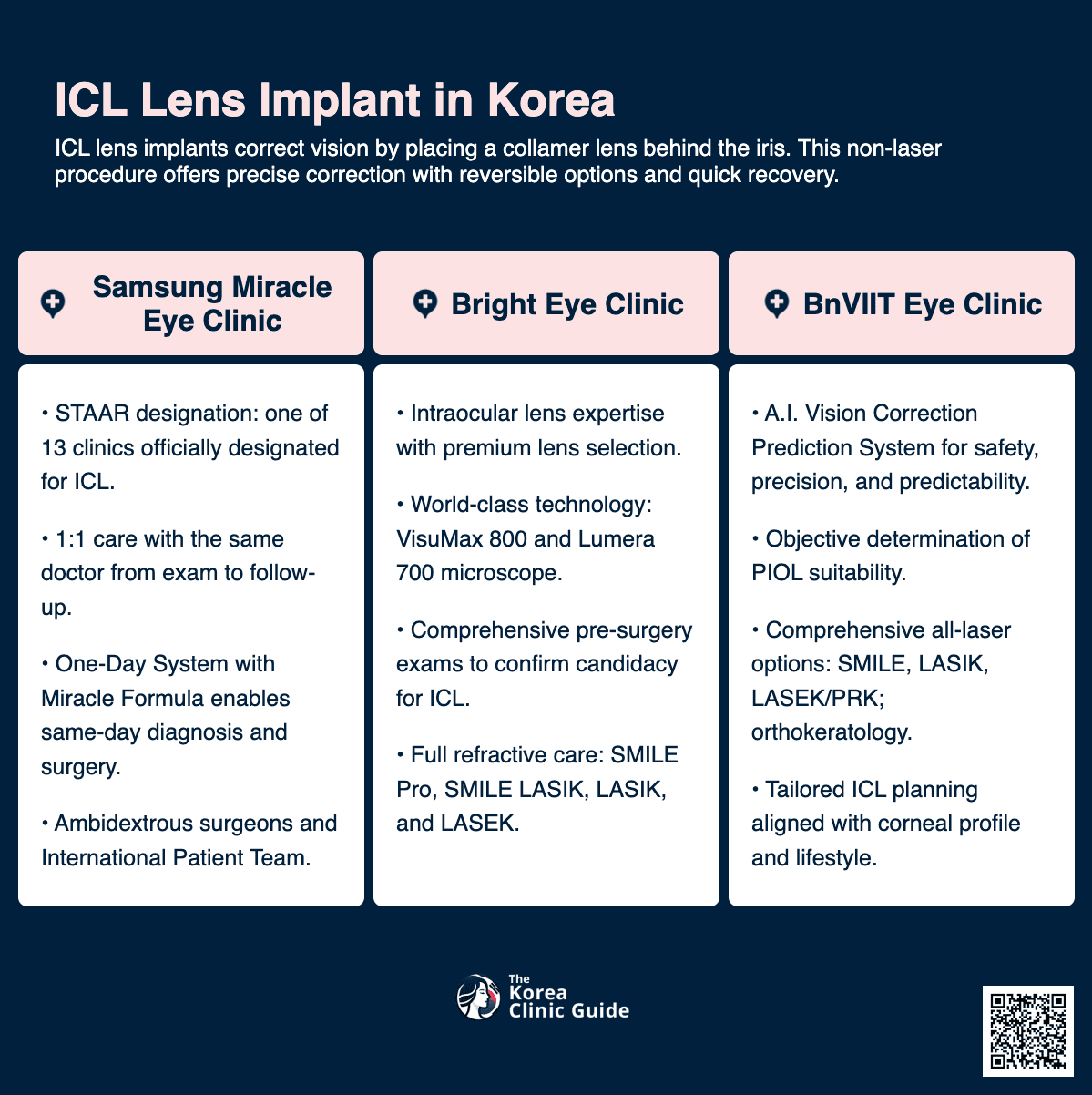
Implantable Collamer Lens (ICL) surgery is increasingly becoming a popular choice for vision correction in South Korea, renowned for its advanced medical technology and highly skilled ophthalmologists. This procedure, lauded for its precision and effectiveness, offers an alternative to traditional refractive surgeries like LASIK, particularly for individuals with severe myopia or those with thin corneas.
Initial Consultation and Preoperative Assessment
The journey towards clear vision with an ICL implant in Korea begins with a comprehensive eye examination. During the initial consultation, the ophthalmologist will conduct a series of tests to assess the health of your eyes and determine suitability for the ICL procedure. These tests often include corneal topography, measurements of the anterior chamber depth, and eye pressure. The consultation provides an opportunity to discuss your vision goals and address any concerns about the procedure.
Given Korea's reputation for meticulous attention to detail, the preoperative assessment is thorough, ensuring that only suitable candidates proceed. During this phase, you'll likely undergo biometry to precisely measure your eye dimensions, allowing for the customization of the lens implant to fit your unique ocular structure.
Surgical Experience
The ICL surgery itself is typically performed under local anesthesia and is an outpatient procedure, meaning you can return home the same day. On the day of surgery, you'll be prepped and made comfortable by the clinic's staff, who are usually well-versed in preoperative and postoperative care owing to their extensive experience with international patients.
The procedure begins with the administration of anesthetic eye drops to ensure you feel minimal discomfort. The surgeon will then create a small incision at the cornea's edge to insert the folded ICL behind the iris and in front of the natural lens. Advanced surgical techniques, coupled with Korea's cutting-edge technology, ensure that the risk of complications is minimal and that the process is swift, typically lasting between 20 to 30 minutes per eye.
Postoperative Care and Recovery
After the surgery, you'll be given protective eyewear and a set of comprehensive instructions to aid in your recovery. Korean clinics are known for their meticulously planned aftercare routines, which include scheduled follow-up visits to monitor the healing process. Patients are usually advised to avoid strenuous activities for a few weeks and to protect their eyes from dust and water during the initial healing period.
You'll notice significant improvements in your vision almost immediately after the surgery, although it might take a few days for the vision to stabilize completely. It is not uncommon for patients to describe a newfound clarity that enhances their daily life profoundly.
| Procedure Price | Korean Won (₩) | USD ($) |
|---|---|---|
| Low Price | ₩5,000,000 | $3600 |
| High Price | ₩7,500,000 | $5500 |
Exchange rate as of 2025-05-22: 1 KRW = 0.0007 USD
Please note that these prices are approximate guidelines and can vary significantly based on the clinic and your individual circumstances.
Cost of ICL Lens Implant in Korea
When considering vision correction options, the Implantable Collamer Lens (ICL) implant has gained popularity due to its effectiveness and long-term benefits. South Korea, known for its advanced medical technologies and skilled practitioners, is a preferred destination for those seeking high-quality eye care at competitive prices. Here's an overview of the costs associated with getting an ICL lens implant in Korea.
ICL Lens Implant Costs
The cost of an ICL lens implant procedure in Korea typically ranges from approximately 5,000,000 to 7,500,000 Korean Won (KRW). This price range covers the lens itself, the surgical procedure, and postoperative care. Factors influencing the cost include the reputation of the medical facility, the experience and expertise of the surgeon, and the specific type of ICL lens used. It's worth noting that some clinics may offer additional packages that include pre-surgical consultations and follow-up visits.
Travel Expenses to Korea
Traveling to Korea for medical procedures involves additional costs beyond the medical expenses. Round-trip airfare to major cities like Seoul or Busan can vary widely depending on the departure location and the time of booking. Typically, flight costs range from 800,000 to 2,000,000 KRW for economy class tickets, but prices can vary significantly based on the season and airline preferences.
Accommodation and Daily Expenses
Korea offers a wide range of accommodation options to fit different budgets, from luxury hotels to more affordable guesthouses and hostels. On average, a mid-range hotel may cost between 100,000 and 200,000 KRW per night. Travel expenses, including public transportation, meals, and other daily necessities, should also be considered. Daily expenses can average around 50,000 to 100,000 KRW, depending on lifestyle choices and dining options.
Total Estimated Cost
Combining the ICL procedure costs with travel and accommodation expenses, the total cost of getting an ICL lens implant in Korea can range from 5,950,000 to 9,800,000 KRW, depending on various factors and personal preferences. For those considering medical tourism in Korea, it's advisable to research and plan thoroughly to ensure a smooth and cost-effective experience.
Alternatives to ICL Lens Implant
While Implantable Collamer Lenses (ICLs) offer a compelling solution for refractive error correction, several alternative procedures can achieve similar vision improvement. The best option depends on individual factors like age, eye health, and refractive error severity. Here are three alternatives to consider:
1. LASIK (Laser-Assisted In Situ Keratomileusis): LASIK is a widely established refractive surgery technique that reshapes the cornea using a laser to correct refractive errors like myopia, hyperopia, and astigmatism. A thin flap of corneal tissue is created, and the underlying stroma is precisely reshaped with an excimer laser to alter the cornea's refractive power. Following the procedure, the flap is repositioned, and vision typically improves rapidly. LASIK is a suitable option for individuals with relatively healthy corneas and stable refractive errors. However, it's not appropriate for all patients, especially those with thin corneas, dry eye syndrome, or high degrees of refractive error.
2. PRK (Photorefractive Keratectomy): PRK is another laser refractive surgery technique that's similar to LASIK, but without the corneal flap. Instead, the outer layer of the cornea (epithelium) is removed, and the underlying stroma is reshaped with an excimer laser. The epithelium then regenerates naturally. PRK may be preferred for patients with thinner corneas or those at higher risk of complications with LASIK. Recovery time is typically longer than with LASIK, with potential for some discomfort and blurry vision during the initial healing phase. However, PRK offers a potentially safer alternative for certain candidates who are unsuitable for LASIK.
3. SMILE (Small Incision Lenticule Extraction): SMILE is a relatively new, minimally invasive refractive surgery technique that uses a femtosecond laser to create a small lenticule (a thin disc) within the cornea. This lenticule is then removed through a small incision, reshaping the cornea to correct refractive errors. SMILE often results in less disruption to the corneal structure compared to LASIK and PRK, potentially leading to faster visual recovery and reduced risk of dry eye. However, SMILE may not be suitable for all refractive errors, particularly higher degrees of astigmatism or hyperopia.
Conclusion
In summary, ICL lens implants offer a viable alternative to LASIK and other refractive surgeries for individuals in Korea seeking vision correction, particularly those with higher prescriptions or thinner corneas. While the cost of ICL surgery in Korea can vary, it's important to weigh this against the long-term benefits and compare it to alternative procedures like LASIK, SMILE, or glasses/contact lenses. Ultimately, the best choice depends on individual eye health, lifestyle, and budgetary considerations, necessitating a thorough consultation with a qualified ophthalmologist to determine the most suitable vision correction method.
